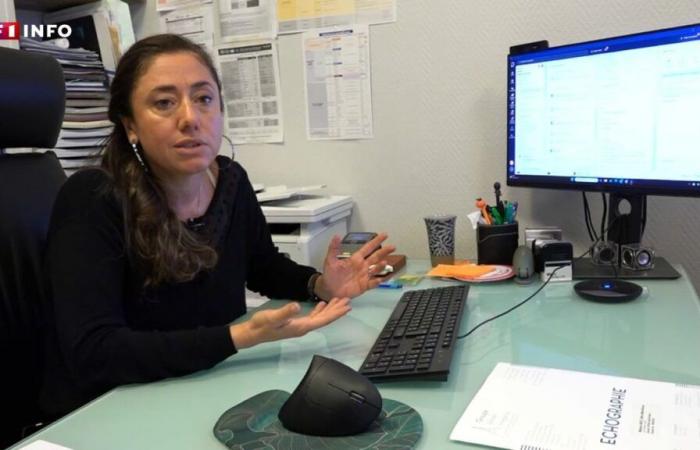While one in three French people live in a medical desert, one of the solutions could be the use of artificial intelligence.
This is already the case in several dozen medical practices.
Watch this report from TF1 news.
Follow the full coverage
The 8 p.m.
What if in the future, our doctor visits were recorded? There would be no more notepad, no more pen, but just a microphone. It is in fact an artificial intelligence which would take care of this task, capable of recording everything that is said in the office and producing a report in real time. “During the entire consultation period, there is a little icon on the computer that shows that it is recording well. And as soon as I'm finished, I'm just going to click on 'Generate the synthesis'”, explains Marie Msika Razon, general practitioner in Paris, in the 20H report on TF1 at the top of this article.
Nearly 400 doctors use this technology which was launched a few days ago. Artificial intelligence would free us from administrative tasks, if we are to believe this general practitioner. “I no longer take notes, I just talk with my patients, which is really much more pleasant. The big advantage of this tool is that as the entire consultation takes place, in the end, the rendering of notes that we have is much more exhaustive, much more complete than what we tended to do”continues Marie Msika Razon.
“Incredible prospects”
The company that develops the application ensures that all data remains private, only the doctor can consult it. His patients are already convinced. “It’s great. The contact with the doctor, the longer we can talk to each other,” says a retiree. “We still feel the doctor is more available in a certain way”adds her husband.
Artificial intelligence, AI, serving doctors and patients, is only the beginning. And it’s Stanislas Niox-Château, the co-founder of Doctolib, who says it. “The current progress in artificial intelligence opens up incredible perspectives for all of us. We are also going to launch a virtual telephone assistant. We are also going to launch tools to help with prescriptions and help with prevention. AI is going to be everywhere”, he says.
We will therefore find it in offices, but also in hospitals, to help practitioners get organized. For example, to view your medical history. It must be said that it is often long and tedious. Some key information may even be lost. “When a patient goes to the hospital, there will be a lot of clinical documents that will be produced. There is a lot of information that is contained there, but which can be scattered everywhere”estimates Thomas Petit-Jean, Data Scientist analyst.
-
Read also
Artificial intelligence, “a huge time saver” for detecting breast cancer
The AP-HP has therefore developed algorithms capable of reviewing your entire patient life in an instant. A few seconds are enough to automatically find a trace of fragility or illnesses contracted in the past. “Using these AI tools, from a large document that can be several pages long, will be able to find liver disease, diabetes and tobacco use,” continues the analyst.
Administrative work now takes up almost a third of doctors' working time. This could quickly change. Almost all hospital and clinic directors plan to invest in AI next year.






